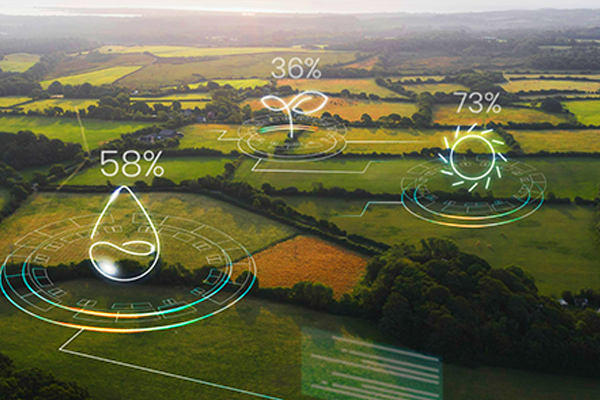Smart Farming : Cultivating the Future of Agriculture

Smart farming is revolutionizing agriculture by merging technology with traditional practices, addressing challenges like population growth, climate change, and resource scarcity. This data-driven approach employs IoT, drones, sensors, AI, and analytics to transform farming. Real-time data from sensors helps farmers make informed decisions about temperature, soil moisture, and crop health. Drones provide high-resolution imagery for monitoring fields, identifying pests, and assessing conditions.
AI processes vast data to predict yields, detect diseases, and optimize planting. Smart farming offers remarkable benefits, including efficiency, sustainability, higher yields, and data-driven decision-making. It conserves resources through precision irrigation, reduced pesticide use, and resource-efficient practices. This approach enables farmers to address challenges proactively and make well-informed choices.
Looking ahead, smart farming’s potential is immense. Autonomous machinery driven by AI and GPS will automate tasks, from planting to harvesting. Blockchain will ensure transparency in the food supply chain, enhancing safety and quality. With weather forecasts and climate modeling, smart farming will aid climate-resilient decisions. Embracing this shift is crucial, as it guarantees a sustainable and resilient agricultural sector. Collaborative efforts among farmers, researchers, and innovators are shaping a future where technology and agriculture coexist harmoniously, ensuring food security and environmental conservation. The era of smart farming has arrived, promising a future where innovation and precision unite to cultivate the Earth’s resources wisely.






